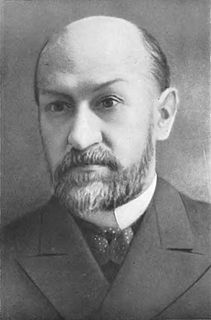Related Research Articles

Thrace or Thrake is a geographical and historical region in Southeast Europe, now split among Bulgaria, Greece, and Turkey, which is bounded by the Balkan Mountains to the north, the Aegean Sea to the south, and the Black Sea to the east. It comprises southeastern Bulgaria, northeastern Greece, and the European part of Turkey. The region's boundaries are based on that of the Roman Province of Thrace; the lands inhabited by the ancient Thracians extended in the north to modern-day Northern Bulgaria and Romania and to the west into the region of Macedonia.
In ancient Greek religion and mythology, Adrasteia, also spelled Adrastia, Adrastea, Adrestea, Adastreia or Adrasta), originally a Phrygian mountain goddess, associated with Cybele, later was a Cretan nymph, and daughter of Melisseus, who was charged by Rhea with nurturing the infant Zeus in secret, to protect him from his father Cronus.
In Greek mythology, the name Hippocoön refers to several characters:
In Greek mythology, Abderus or Abderos was a divine hero, reputed by some to be one of Heracles' lovers (eromenoi), and reputedly a son of Hermes by some accounts, and eponym of Abdera, Thrace.
In Greek Mythology, Eumolpus was a legendary Thracian king. He was described as having come to Attica either as a bard, a warrior, or a priest of Demeter and Dionysus.

The Thracians were an Indo-European speaking people, who inhabited large parts of Eastern and Southeastern Europe in ancient history. Thracians resided mainly in the Balkans, but were also located in Asia Minor and other locations in Eastern Europe.

The New Grove Dictionary of Music and Musicians is an encyclopedic dictionary of music and musicians. Along with the German-language Die Musik in Geschichte und Gegenwart, it is one of the largest reference works on the history and theory of music. Earlier editions were published under the titles A Dictionary of Music and Musicians, and Grove's Dictionary of Music and Musicians; the work has gone through several editions since the 19th century and is widely used. In recent years it has been made available as an electronic resource called Grove Music Online, which is now an important part of Oxford Music Online.
Dia, in ancient Greek religion and folklore, may refer to:

In Greek mythology, Calliope is the Muse who presides over eloquence and epic poetry; so called from the ecstatic harmony of her voice. Hesiod and Ovid called her the "Chief of all Muses".

The Bessi were an independent Thracian tribe who lived in a territory ranging from Moesia to Mount Rhodope in Northern Thrace, but are often mentioned as dwelling about Haemus, the mountain range that separates Moesia from Thrace and from Mount Rhodope to the northern part of Hebrus.

The Encyclopaedia of Islam (EI) is an encyclopaedia of the academic discipline of Islamic studies published by Brill. It is considered to be the standard reference work in the field of Islamic studies. The first edition was published in 1913–1938, the second in 1954–2005, and the third was begun in 2007.
The Moesi was a Thracian tribe which inhabited present day Northern Bulgaria and Serbia, which gave its name to the Roman province of Moesia after its defeat in 29 BC. Moesia was first established as a separate province in 45–46 AD.

Rhesus is a fictional Thracian king in Iliad, Book X, who fought on the side of Trojans. Diomedes and Odysseus stole his team of fine horses during a night raid on the Trojan camp.

Vasily Vladimirovich Bartold, who published in the West under his German baptism name, Wilhelm Barthold, was a Russian Orientalist who specialized in the history of Islam and the Turkic peoples (Turkology).
Thracology is the scientific study of Ancient Thrace and Thracian antiquities and is a regional and thematic branch of the larger disciplines of ancient history and archaeology. A practitioner of the discipline is a Thracologist. Thracology investigates the range of ancient Thracian culture from 1000 BC up to the end of Roman rule in the 4th–7th centuries AD. Modern Thracology started with the work of Wilhelm Tomaschek in the late 19th century.
In Greek mythology, Poltys is a mythical king and eponym of the Thracian city of Poltyobria, featured in Apollodorus's account of the story of the hero Heracles. Poltys and his brother Sarpedon are given as sons of the sea-god Poseidon.

The history of Thracian warfare spans from the 10th century BC up to the 1st century AD in the region defined by Ancient Greek and Latin historians as Thrace. It concerns the armed conflicts of the Thracian tribes and their kingdoms in the Balkans. Apart from conflicts between Thracians and neighboring nations and tribes, numerous wars were recorded among Thracian tribes.
Myrcinus or Myrkinos was an ancient Greek city located in Macedonian Thrace, in the region of Edonis between the Strymon and the Nestos Rivers, on the left bank of the Strymon. It was within the territory of the Edonians, a Thracian tribe, and was founded as a polis by colonists from Miletus in 497 BCE. The colonists were led by Histiaios, whom Darius had allowed to build a city in reward for his help. Its site offered great advantages to settlers, as it contained an abundant supply of timber for shipbuilding, as well as silver mines. Aristagoras retired to this place, and, soon after landing, perished before some Thracian town which he was besieging. Afterwards, it had fallen into the hands of the Edoni; but on the murder of Pittacus, chief of that people, it surrendered to Brasidas after he captured Amphipolis, Oesyme and Galepsus in 422 BCE. During the Byzantine empire it was known as Doxompos (Δοξόμπος) or Doxompus (Δοξόμπους).

Theories of Surplus Value is a draft manuscript written by Karl Marx between January 1862 and July 1863. It is mainly concerned with the West European theorizing about Mehrwert from about 1750, critically examining the ideas of British, French and German political economists about wealth creation and the profitability of industries. At issue are the source, forms and determinants of the magnitude of surplus-value and Marx tries to explain how after failing to solve basic contradictions in its labour theories of value the classical school of political economy eventually broke up, leaving only "vulgar political economy" which no longer tried to provide a consistent, integral theory of capitalism, but instead offered only an eclectic amalgam of theories which seemed pragmatically useful or which justified the rationality of the market economy.
References
- ↑ von Bredow, Iris (Bietigheim-Bissingen), “Maduateni”, in: Brill's New Pauly, Antiquity volumes edited by: Hubert Cancik and , Helmuth Schneider, English Edition by: Christine F. Salazar, Classical Tradition volumes edited by: Manfred Landfester, English Edition by: Francis G. Gentry. Consulted online on 27 January 2020 <http://dx.doi.org/10.1163/1574-9347_bnp_e715900> First published online: 2006 First print edition: 9789004122598, 20110510
| Wikimedia Commons has media related to Ancient Thrace and Ancient Thracians . |